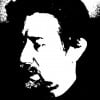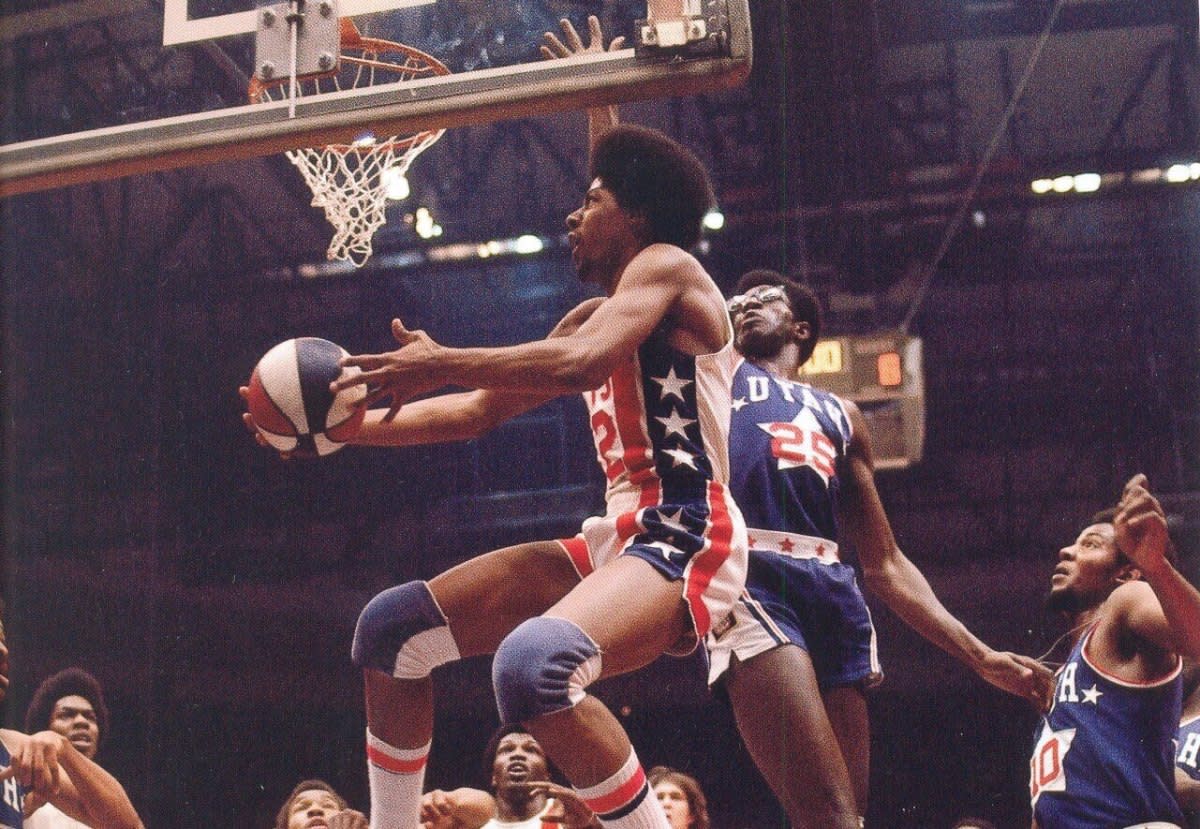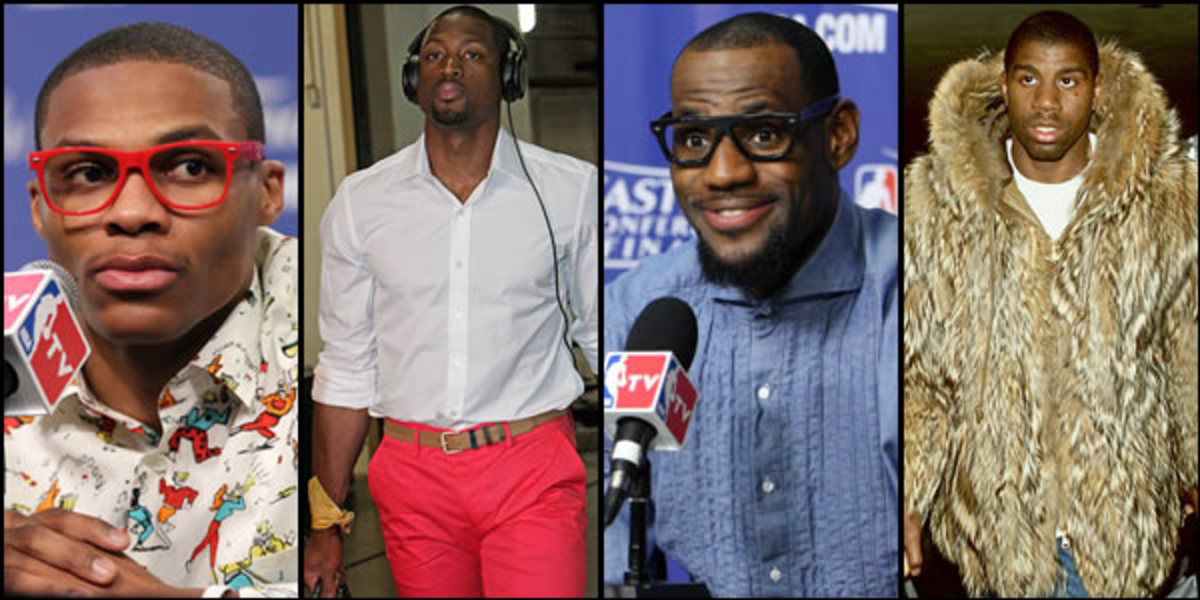Kentucky Wildcats Coach John Calipari is Bad for Basketball
Sending high school basketball players to college has helped the NBA
The collective bargaining agreement between the NBA and the NBA Players Association stipulates an athlete must be at least one year removed from his high school graduation to apply for admission into the NBA draft. This was established to keep players from bypassing college to play for pay and allows the NBA to draft players based on accomplishments rather than potential.
To a large degree this policy has been successful, and the 2010 NBA Draft held on June 24th was based more on the accomplishments of players than any draft in recent memory. An indicator of the benefits of sending basketball players to college was evinced in the declining number of players drafted from overseas. As a hedge against drafting high school players whose actual skills were obscured through their domination of lesser opponents, NBA teams frequently use the second round of the draft to select athletes from Europe or Asia. This year the NBA more capably scouted players from the United States and the number of foreign athletes selected in the draft diminished. On the surface it appears the rule prohibiting athletes from going pro out of high school achieved its intended purpose.
With one exception, that is.
UK basketball--a college dynasty or NBA farm team?


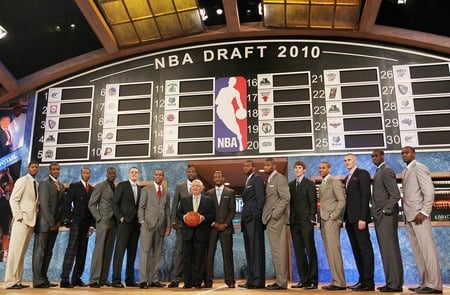
Daniel Orton--a victim of Calipari's master plan?
“With the 29th pick in the 2010 NBA Draft, the Orlando Magic selects Daniel Orton of the University of Kentucky.” When Commissioner David Stern spoke these words, the face of NBA and NCAA basketball changed for the worse. Why does this young man’s selection mean so much trouble? It’s because the NBA once again sacrificed the practice of drafting a player based upon their accomplishments in favor of another agenda. Orton averaged less than four points and four rebounds per game as a freshman for the Kentucky Wildcats. He wasn’t able to earn appreciable court time with DeMarcus Cousins or Patrick Patterson playing ahead of him, even during Wildcat blowouts—and Orlando selected him anyway.
I have nothing against Daniel Orton personally and I hope he succeeds as a pro, but his future is hard to predict based upon his accomplishments—so he must have been drafted on potential, right? That’s what Magic General Manager Otis Smith claimed after making the selection, and Smith explained they got a “bargain” with the 29th pick in the draft. Orlando rationalized that Orton might have been a lottery pick in a year or two, had he stayed in college. Their list of rationalizations strikes a dissonant chord since Orton scored in double figures only twice in 38 games for Kentucky. A potentially great player should have at least a few good games as a freshman. Kentucky played Morehead State, Sam Houston, Cleveland State, UNC-Asheville, Austin Peay, Drexel, and Long Beach State. Surely he could have managed to play well against one of those teams, but he didn’t. Only against Hartford and Rider did Orton manage 10 points or more, so what did the Magic see in this guy? Perhaps his substandard year with the Wildcats can be explained away; he suffered a knee injury in high school and it’s possible he hadn’t fully regained his strength and mobility, but even this rationale is problematic. Shouldn’t an assessment of his potential take the durability of his knee into consideration?
In NBA summer league games, Orton admitted to struggling. He confessed to arriving out of shape, and was ejected for tussling with the Indiana Pacers’ Josh McRoberts. He claimed his legs were dead and he couldn’t get anything going for himself. If this was his story after one week of summer league action, it’s going to be a long season for him. He hadn’t played a game since March and only averaged about 13 minutes for Kentucky, so fatigue is hard to explain. Fans on an Orlando Magic web site quickly turned against Orton, and it’s hard to imagine he will help the team any time in the near future. Drafting him was inexplicable and tragic, and the Magic will pay the price with their wasted “bargain” selection.
Calipari is hurting both the college and pro game
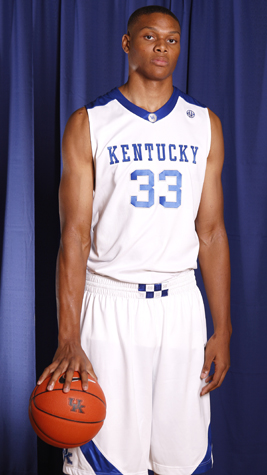
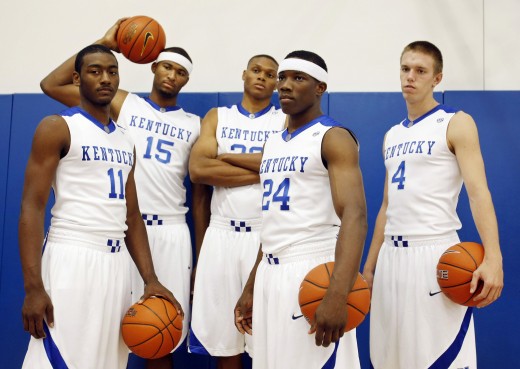
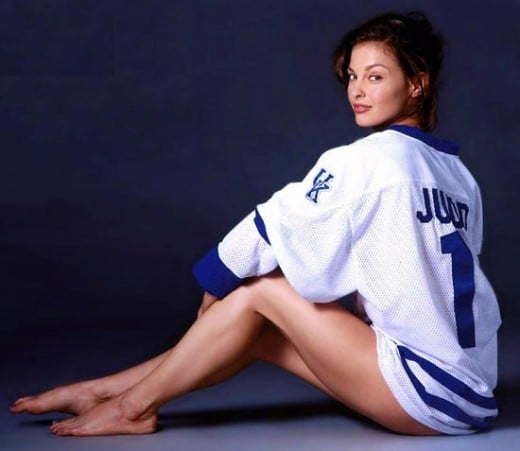
Everyone loses (except Coach Calipari)
What does all this mean? It appears to mean Daniel Orton was drafted simply because he played for Kentucky Coach John Calipari. He was not recruited by Calipari and often looked unhappy playing for him, but make no mistake—Orton was a Kentucky Wildcat. No players with 3 points per game scoring averages would have the nerve to go pro unless they played for Coach Cal. Calipari in kind hailed the selection of five UK Wildcats in the first round of the NBA draft the “greatest moment in the history of Kentucky basketball.” Really? Draft day was more important than any of Kentucky’s championship seasons? Why is that, Coach Cal? Is it because you proved to high school players around the country that you can get absolutely anyone into the NBA Draft if they play for you? Is it because you now can over-recruit for your “dream teams” since players know they don’t have to start (or even play well) to get noticed by the pros? Did you realize a personal goal in transforming Kentucky into an NBA farm team? That seemed to be the case when you challenged yourself on the air to get six players into the NBA draft next season.
Kentucky fans, you’ve been sold out. Coach Cal funneled Daniel Orton into the NBA Draft before he was ready, rather than work on his game and help Kentucky win some basketball games in the process. It might be easier for Calipari to replace Orton than develop his skills, but shouldn’t that be what coaching is about? If Calipari continues to bleed off the best high school talent each season, UK teams will always be very good, but they will never have an identity. They will be a high school all-star team wearing Kentucky jerseys, and it will never be about Kentucky—it will always be about personal goals.
This article is not about Daniel Orton. It’s about condemning a decision to draft Orton before he’s ready, almost certainly guaranteeing his failure as a professional athlete. It’s about Calipari’s determination to recruit all-star teams rather than teach kids to play the game. It is ultimately about implementing a system that relieves Coach Cal of culpability; if he recruits a player that doesn’t pan out immediately he no longer needs to care. Cal can simply ship him off to the NBA and bring in the next recruit. He doesn’t need to develop players anymore and someday he might even luck into an NCAA title with the University of Kentucky, further cementing his illusion of coaching excellence. It’s all perfect….at least for him.
The trouble is, it’s bad for basketball. And, it's bad for guys like Daniel Orton.
2012 Update
Daniel Orton played only 16 games for the Orlando Magic in two seasons, averaging 2.8 points, 2.4 rebounds and 0.6 blocks per contest. The option year on his contract was not picked up, and Orton became an unrestricted free agent. He was recently signed to a non-guaranteed contract by the Oklahoma City Thunder, who already have a wealth of big men on their roster. It seems unlikely that Orton will make the team, and his immediate future more likely includes the NBA Developmental League.
What does this mean? Did Orton get what he wanted out of his college and pro career so far? It seems unlikely. It is more likely that Orton felt used and perhaps abandoned by Coach John Calipari. I don't know this, of course--I can only imagine.
Meanwhile, Calipari continues to load and reload his Kentucky Wildcats with high school stars and in 2012, he broke through and won an NCAA title. Calipari's players were once again prominently featured in the NBA Draft in June, with Anthony Davis and Michael Kidd-Gilchrist selected #1 and #2 by the New Orleans Hornets and the Charlotte Bobcats, respectively. Never before in the history of the NBA draft had two players from the same college school gone first and second, and Coach Cal will likely benefit more than anyone. He has another tool in his toolbox to convince high school players that there is no more certain path to the NBA than through spending time in the UK pro factory. He might be correct, too--but is it good for the game of basketball?
Calipari looked at the "one-and-done" aspect of the rule mandating players be one year removed from their high school graduating class before being eligible for the NBA Draft and saw how to benefit from it. His teams make no pretense of any desire to represent college athletics. He gets players to the NBA, and if he happens to win an NCAA title or two along the way, well--that's even better. It's what is expected of him as the head coach of the Kentucky Wildcats, and he has found a successful (if odd) formula for accomplishing this.
Do the players really benefit, though? Might Anthony Davis still have been the #1 pick in the NBA draft if he played for Oklahoma State instead of Kentucky? It's extremely possible. Or, let's consider another thought: what if he doesn't deserve the top pick? What if Davis' play is more reminiscent of Hasheem Thabeet than Hakeem Olajuwon? What if he is the next Daniel Orton?
It is an unlikely scenario, admittedly, but not an impossible one. After all, Thabeet dominated the college game as well, playing with a style very similar to that of Anthony Davis. If Davis isn't as good as advertised, he never got the chance to work on his game and develop further. At Kentucky, players are expected to go pro after one year.
I first wrote this article two years ago, and my message is unchanged. Let me reiterate: I am not against Daniel Orton or Anthony Davis. I wish them great success, because the better players they become, the better the NBA I enjoy watching becomes. I am only against Calipari affecting the college game, his players and even the NBA with his antics. Coach Cal has done nothing wrong that I am aware of--I just find his style distasteful and bad for the game. It was certainly bad for Daniel Orton.

Read more articles about the NBA and NCAA basketball
- High School Players Should Attend College Before the NBA
Watch out, NBAits the Attack of the One-and-Done Gang! A sense of normalcy has been returned to the NBA draft after years of draft-night lunacy, and we have the NBA policy mandating a... - The Miami Heat, Kentucky Wildcats and Beyond: Are Dream Teams Bad for Basketball?
The year was 1988. Georgetown basketball coach John Thompson was placed in charge of the United States Olympic Team. His squad included David Robinson from Navy, Danny Manning from the NCAA champion... - Everyone Loses with Xavier Henry Going to the NBA (Almost)!
Xavier Henry held a tearful press conference on April 7th, announcing his decision to leave the University of Kansas and declare for the NBA draft. It was a surprise to no oneHenry announced his... - Let's Save the NBA from the Draft Early Entries!
Lets Save the NBA from Early Draft Entries! Im here today to save the NBA. Like a predator stalking helpless, unsuspecting victims, the NBA is being watched. The menace is lurking in the shadows,... - Top Five College Basketball Programs
UCLA. North Carolina. Duke. Kentucky. Indiana. Kansas. Arizona. Connecticut. Michigan. UNLV. Georgetown. Louisville. Michigan State. For college basketball, these teams have represented the best of the... - KU Men's Basketball 2010-2011: A Look Ahead with Zach Peters and Nino Jackson Update
KUs 2010 basketball season ended unceremoniously in the second round of the NCAA Tournament, as they fell to Northern Iowa 69-67. Their loss took the luster off a brilliant 33-3 campaign that captured... - KU Men's Basketball 2010-2011: The Importance of Josh Selby
In the late signing period, the Kansas Jayhawks landed the player they needed when they signed Josh Selby, Rivals.coms #1 high school player, to a national letter of intent. Kansas coach Bill Self... - Kansas Jayhawks Men's Basketball 2010-2011: Player Profiles and More
The Kansas Jayhawks Mens Basketball team has a tradition comparable to any in college basketball. KU lists among their accomplishments entering the 2010-2011 season: the third most wins in college...
